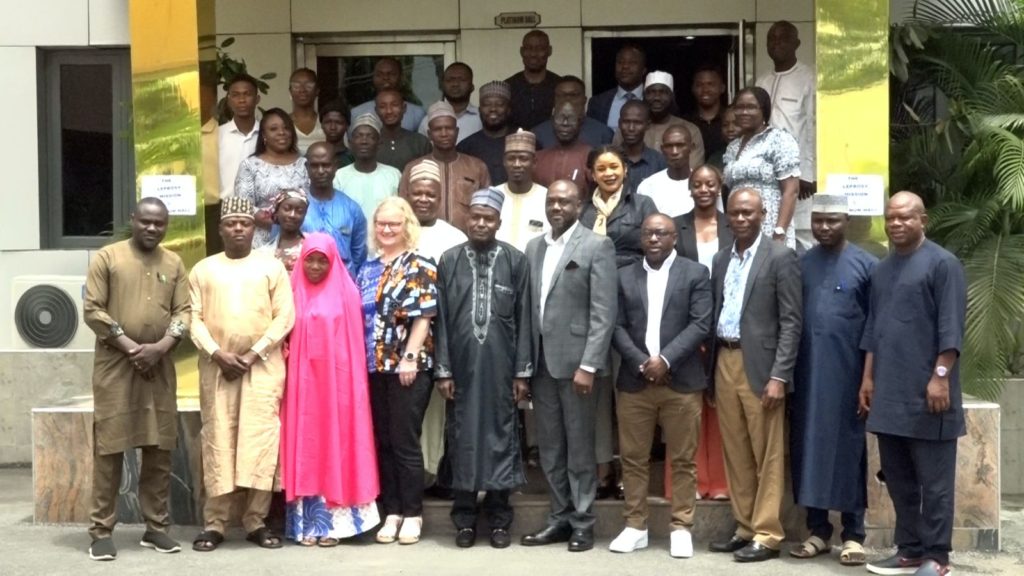
By Diana Omueza
The Leprosy Mission Nigeria (TLMN) has disclosed that nearly 2, 500 new cases of leprosy are discovered annually in Nigeria.
Dr Sunday Udo, the National Director of the mission in Nigeria, said this at its Open Minds Project close-out meeting on Tuesday in Abuja.
The Open Minds project is a 4 year mental health project initiative focused on young people affected by leprosy and Neglected Tropical Diseases.
The project was implemented in FCT, Kebbi, and Sokoto States, respectively.
Udo said that for over 10 years, the mission had found and equally treated thousands of leprosy cases in the country; however, 90 per cent of the Nigerian population remained protected from the disease.
“ TLM works in about 30 countries across the world, including Nigeria, and every year, we find approximately 2,500 new people that have leprosy in this country.
“We work in collaboration with the Federal Ministry of Health and in partnership with the National Leprosy Control Programme that we support.
“Over the last 10 years, we have found thousands of cases and treated equally that large number, but the interesting thing is that there is a large backlog of those who have already developed disabilities.
“They run into hundreds of thousands of people, and what we do is to support them with care after cure,“ he said.
Udo said that the mission had raised awareness on the impact of leprosy on the mental health of affected persons and the need to end stigma and discrimination.
He said that the mission had also provided those with disabilities from leprosy with disabilities services and complication management from the disease across different referral centres.
The TLMN country leader also said that the mission was supporting affected persons with livelihood, stating that due to stigma, many of those affected had lost their sources of livelihoods and needed such supports.
He sensitised Nigerians that leprosy was not a death sentence, adding that it was a bacterial infection that was curable, just like tuberculosis, which was curable with the right treatment and medication.
According to him, tuberculosis and leprosy are curable, and there are antibiotics that we give and once you take the medications within six to twelve months you will be fine.
He advised the public to eat well and avoid crowded areas, boost their immunity, and maintain a healthy lifestyle in order to be healthy and remain immune to all kinds of diseases, including leprosy and other bacterial infections.
Udo urged the Federal Government to continue to support the mission and the national leprosy programmes and technical working group to live up to its mandates.
Ms Heather Saranne, Programme Officer, TLM Great Britain, lauded the leprosy mission in Nigeria for its valuable impact in the lives of those affected in the country.
Saranne said that the Nigerian team was so valuable globally, and the British TLM would continue to work with the mission to carry out programmes that would directly improve the lives of affected persons.
“We have been in communication with the team at the leprosy mission in Nigerian because we can’t do this work without them, and because they do all the hard work.
“We have reviewed their performance against achievement and towards the target and the budget, we have done project visits with partners, we have met with projects clients to hear about the things that have gone well.
“We will work together to adopt any of those projects activities accordingly, we also act as the liaison between the project and the relief that will be reporting along with the team here in Nigeria.
“The relationship that we have with the leprosy mission in Nigeria is so valuable that we can’t put into words,“ she said.
Saranne said that based on the testament of the impact on affected persons, there was a need to sensitise the public on mental health issues caused by leprosy stigma and discrimination.
She said that the mission in Britain was more focused on the physical aspect of leprosy and had improved its supported health services through the establishment of hospitals and carrying out of surgical operations.
This she said was also in the plan of the TLM in Britain to incorporate mental health and wellbeing into a lot of its new projects in Nigeria that would be funded by TLM Great Britain.
“Its in our new strategy, and we are not only funding new projects, we are also funding research into the most effective ways to support people with their mental health.
“The new project we have that started here in Nigeria last year will continue for three years as a follow up to our open minds project to help people that can’t help themselves with their mental health,“ she said.
Mr Shehu Auta, Kebbi State Tuberculosis and Leprosy Control Programme Manager, appreciated the leprosy mission Nigeria for its support to the Kebbi state government.
“This is the first leprosy mission that is supporting my state with the tuberculosis and leprosy activities in the state, and they have included Non-Neglected Disease in our programme.
“With the coming of this new programme mental health in leprosy, now we can teach leprosy patient after treating them with socio-economic rehabilitation.
“One aspect of life that we didn’t realise was mental health issue but when the leprosy mission came with the mental health programme, we now recognise that people affected by leprosy are suffering from depression and anxiety,“ he said.
Auta said that the programme would help to control anxiety and depression amongst people living with leprosy and other neglected diseases.
He called the federal government to take ownership of the leprosy programme and to expand the programme for the benefit of affected persons across all the local governments within and outside the state.
Auta urged the government to be responsible and involved in the formulation of infectious disease programmes and projects, partake in executions and implementation. (NAN)(www.nannews.ng)